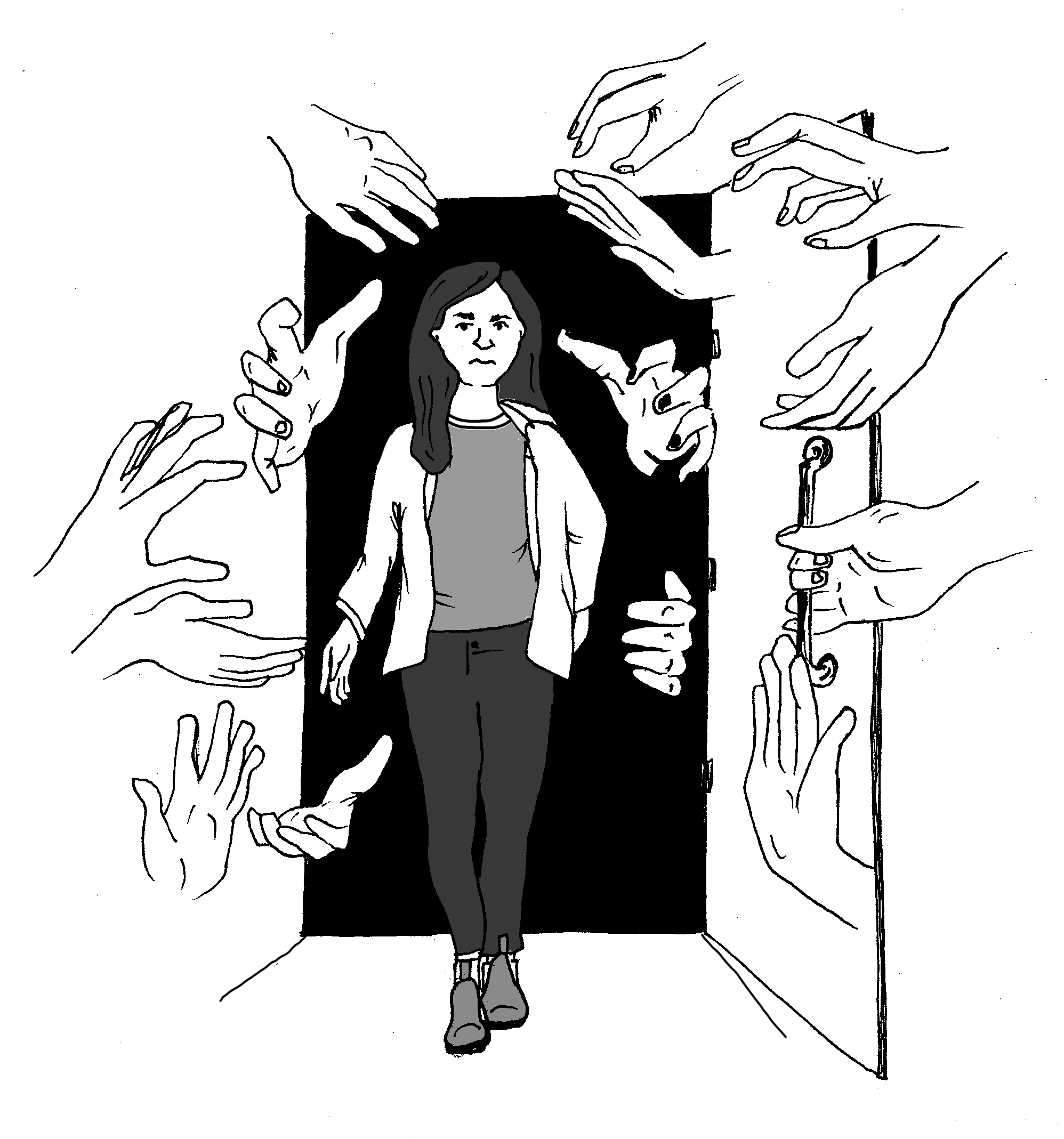Criticizing ‘fuckboy’/‘softboy’ misses the point
December 1, 2017
 This
piece represents the opinion of the author
.
This
piece represents the opinion of the author
.
An article titled, “The unintended impact of the ‘fuckboy’ and ‘softboy’” published in the last issue of the Orient, argues that the terms the Bowdoin community uses to describe opposite-sex relations creates an unfair binary for “the good guys.” In an attempted plea for empathy, the author claims that while not all men “care about ending rape culture,” he does, but he feels ostracized and at a loss for how to show commendable allyship. However, criticizing women for accusing men of “benevolent sexism” at the expense of alienating all of “the good guys” is insidious, misogynistic victim-blaming.
The author of this piece writes that his time in college “has been plagued” by times when women have misconstrued his acts of kindness like holding the door open, or complimenting women on their appearance, for acts of perpetuating the patriarchy. Even if these acts were well-intentioned, they were not perceived as such. Benevolent sexism, whether a symptom of miscommunication or simply of being uninformed, is still sexism. Microagressions function in the same way. Any and every sexist act, whether intentional or not, serves to perpetuate inequality between men and women.
The author writes that it is “almost impossible for women to comfortably trust men”—a reality he thinks is perpetuated by the unqualified “name-calling” of Bowdoin men by their “girl[s] of interest.” I do not trust Bowdoin men. And I’m sorry if anyone on this campus feels “damned” by that imposition. But my mistrust is not a consequence of the “pre-packaged narratives” female millennials use to describe college hookup culture. To suggest that the use of the terms “fuckboy” and “softboy” perpetuate a system of gender inequality by either condemning all men as “bad” or by permitting men to ascribe to such caricatures misunderstands why women on this campus feel unsafe. The power men have in sexual relations is one of the most obvious examples of gender inequality—but this is a symptom of the patriarchy, not the cause.
Male domination extends far beyond the reaches of college house basements. Harvey Weinstein, Roy Moore, Louis C.K., Al Franken, Matt Lauer and Garrison Keillor force us to confront the reality of the patriarchal power dynamics embedded in sexual relations. Their actions speak to a patriarchal system in which women’s bodies are routinely abused and disrespected. Sexual assault is about power and inequality. Confronting rape culture, which the author expresses a desire to do, requires going beyond these labels and mitigating this system of power.
A conversation about misogyny and sexism on our campus in which Bowdoin men seek “tangible ways to prove they’re allies to women” is necessary and commendable. But an article that uses terms like “tactical error” to describe personal frustration after interactions with peers of the opposite sex misses the mark. Language matters.
The description of an anecdotal conversation between men and women as “tactical” suggests implicit inherent inequality between men and women: men speaking about interactions with women the same way we speak about military maneuvers evokes an undisclosed motive—that male interactions with women need to be plotted and that women are to be conquered, and controlled.
The words we use to talk about other people and their experiences are representative of our politics. It is for this reason that the author’s inclusion of the racial history of the word “fuckboy,” specifically it’s black origins and white co-option, is so important.
I reject the claim that Bowdoin women are responsible for creating a system in which Bowdoin men are labeled as either a “fuckboy” or a “softboy.” More importantly, I reject the idea that this perceived binary prevents men on this campus from finding “tangible ways to prove they’re allies to women.”
We are all responsible for perpetuating, or changing, any system that perpetuates inequality. To excuse yourself from the patriarchal system by deflecting blame to the mistrusting women on this campus is an erroneous understanding of misogyny.
I completely agree that the “current discourse on opposite sex relations at Bowdoin may need great reconsideration” but villainizing the discourse and the women who use it is a misguided attempt.
If this so-called binary makes you question your actions towards women, let that be a good thing. Notice the imbalance in power. Ruminate in the trepidation you feel in interactions with your female peers.
Elena Gleed is a member of the Class of 2018.
Comments
Before submitting a comment, please review our comment policy. Some key points from the policy:
- No hate speech, profanity, disrespectful or threatening comments.
- No personal attacks on reporters.
- Comments must be under 200 words.
- You are strongly encouraged to use a real name or identifier ("Class of '92").
- Any comments made with an email address that does not belong to you will get removed.


“I do not trust Bowdoin men.”
Sadly, Bowdoin seems overrun by man-hating women who swell with pride as they describe their mostly anemic, petty examples of patriarchal victimhood, as though sexism is the only injustice left to be suffered. They claim a sisterhood with victims who have suffered real injustice or harm as they knock those victims out of the way in their quest to be the center of attention. Their whining cheapens important feminist issues, diminishing our chances of ever arriving at a deeper understanding between the sexes.
If I had a son or a daughter looking at colleges right now, I would advise them to look elsewhere. Bowdoin is not a healthy or a safe environment for anyone who wants to move forward in a society based on mutual respect. As for the author and her like-minded friends, you go girls! But I hope that as you go there isn’t anything really heavy you need lifted or carried.